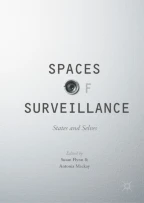
In both Don’t Let Me Be Lonely: An American Lyric (2004) and Citizen: An American Lyric (2014), Claudia Rankine considers spaces of surveillance in the post-9/11 period. In particular, Rankine explores how the citizenship of black Americans consists of a confused conjunction: on the one hand forms of invisibility, or even social death, and on the other hand, the hypervisibility that results from contemporary regimes of policing and social control. This chapter shows how Rankine’s work frames these moments that insistently turn “recognition” from empathetic identification into surveillant oversight. What could reverse this trajectory? Rankine answers at two levels: first by insisting that hers is an American lyric, and taking recourse to ideas like voting and citizenship, which Rankine positions against the spectatorial attitudes of both the well-intentioned and the media-glutted. This rather conventional approach, which emphasizes civic virtue and the virtue of civics, is further tied to Rankine’s intensive interrogation of pronoun usage in these same works, an exploration I read as an extended comment on the contemporary meanings of the lyric form. I propose that Rankine’s pronoun work can be understood as a reflection on the increasing proximity of surveillance society to the society of the spectacle, which work together in a new “aesthetics of transparency,” one that hobbles classical liberal demands for political representation and personal expression.
The original version of the chapter was revised: Missed out correction in chapter title has been incorporated. The erratum to the chapter is available at 10.1007/978-3-319-49085-4_14
This is a preview of subscription content, log in via an institution to check access.